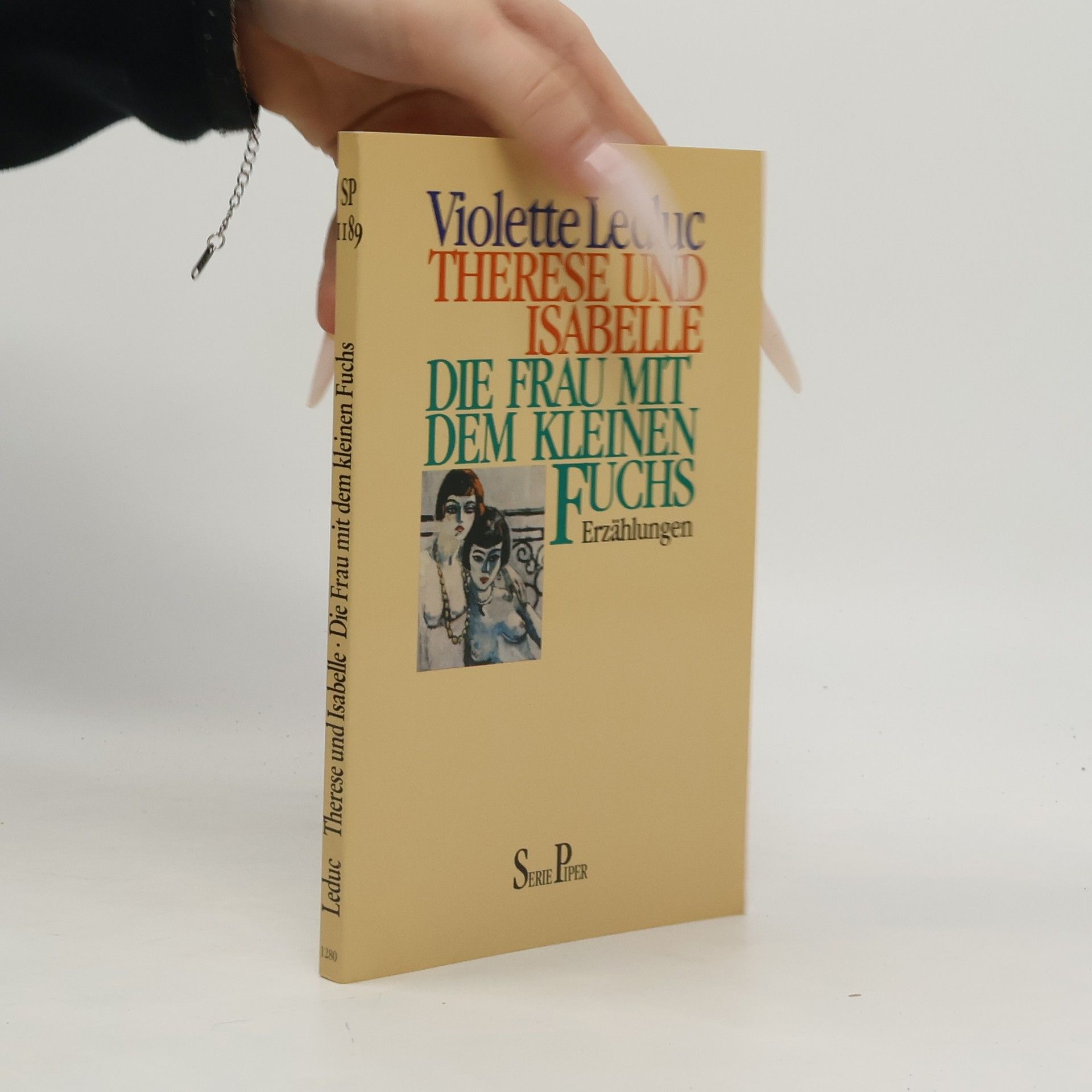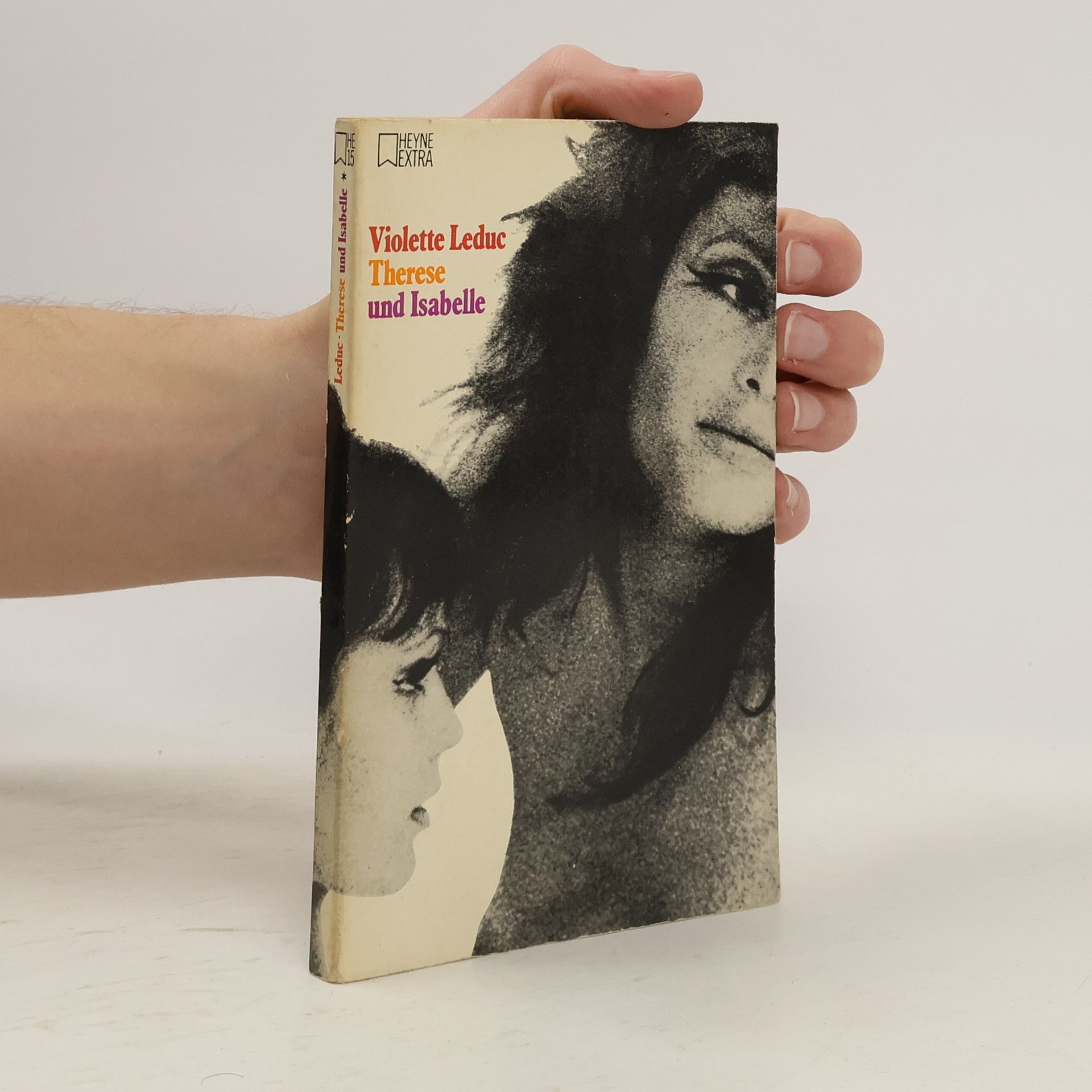An obsessive and revealing self-portrait of a remarkable woman humiliated by the circumstances of her birth and by her physical appearance, La Bâtarde relates Violette Leduc's long search for her own identity through a series of agonizing and passionate love affairs with both men and women. When first published, La Bâtarde earned Violette Leduc comparisons to Jean Genet for the frank depiction of her sexual escapades and immoral behavior. A confession that contains portraits of several famous French authors, this book is more than just a scintillating memoir--like that of Henry Miller, Leduc's brilliant writing style and attention to language transform this autobiography into a work of art.
Violette Leduc Knihy
Violette Leduc se proslavila svým syrovým a intimním psaním, které se často noří do hlubin vlastní identity a složitých vztahů. Její díla zkoumají témata osamělosti, sexuality a hledání vlastní cesty s nekompromisní upřímností. Leduc se nebála odhalovat zranitelnost a vnitřní boje, čímž vytvořila jedinečný literární hlas, který rezonuje s čtenáři hledajícími autenticitu. Její styl je charakteristický svou naléhavostí a silnou emocionální nábojností, která ji odlišuje v literárním světě.






Asphyxia
- 144 stránek
- 6 hodin čtení
The extraordinary first novel from Violette Leduc, praised by Simone de Beauvoir, Jean-Paul Sartre and Jean Genet.
Thérèse and Isabelle
- 245 stránek
- 9 hodin čtení
Th r se and Isabelle is the tale of two boarding school girls in love. In 1966 when it was originally published in France, the text was censored because of its explicit depiction of young homosexuality. With this publication, the original, unexpurgated text--a stunning literary portrayal of female desire and sexuality--is available to a US audience for the first time. Included is an afterword by Michael Lucey, professor of French and comparative literature at the University of California, Berkeley.
The Lady and the Little Fox Fur
- 80 stránek
- 3 hodiny čtení
"An old woman lives alone in a tiny attic flat in Paris, counting out coffee beans every morning beneath the roar of the overhead metro. Starving, she spends her days walking around the city, each step a bid for recognition of her own existence. She rides crowded metro carriages to feel the warmth of other bodies, and watches the hot batter of pancakes drip from the hands of street-sellers. One morning she awakes with an urgent need to taste an orange; but when she rummages in the bins she finds instead a discarded fox fur scarf. The little fox fur becomes the key to her salvation, the friend who changes her lonely existence into a playful world of her own invention."-Book cover
Therese und Isabelle Die Frau mit dem kleinen Fuchs. Zwei Erzählungen
- 144 stránek
- 6 hodin čtení
Charged with metaphors, alternating with precise descriptions of sensations and human relationships, 'Thérèse and Isabelle' was censored by its publisher in France in 1954, first published in a truncated version in 1966 and not until 2000 in its uncensored edition, as Violette Leduc intended. "I'm trying to express as exactly, as minutely as possible the sensations of physical love. There's something here that a woman can understand. I hope this won't appear more scandalous than the thoughts of Molly Bloom at the end of Joyce's Ulysses. Every sincere psychological analysis deserves to be heard, I think." Violette Leduc For the first time in a new English translation, here is the unabridged text of 'Thérèse and Isabelle'. Admired by Jean Genet, Nathalie Sarraute and Albert Camus, Violette Leduc (1907-1972) was championed by Simone de Beauvoir when she published her scandalous autobiography 'La Batarde' (1964). Like 'Thérèse and Isabelle', many of her audacious novels are largely inspired by her life. Her vibrant and lyrical prose continues to fascinate new generations of writers around the world.
Il taxi
- 92 stránek
- 4 hodiny čtení

